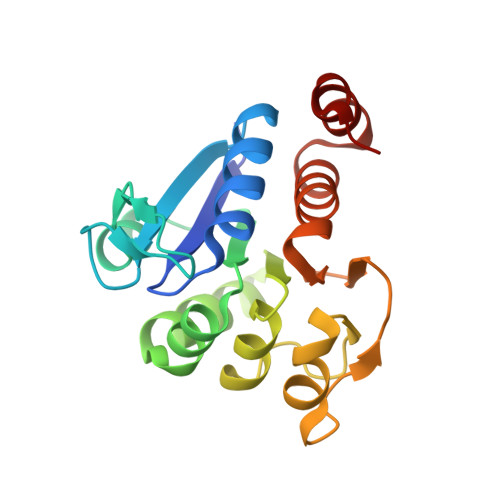N-Cyanopiperazines as Specific Covalent Inhibitors of the Deubiquitinating Enzyme UCHL1.
Schmidt, M., Grethe, C., Recknagel, S., Kipka, G.M., Klink, N., Gersch, M.(2024) Angew Chem Int Ed Engl 63: e202318849-e202318849
- PubMed: 38239128
- DOI: https://doi.org/10.1002/anie.202318849
- Primary Citation of Related Structures:
8PPW, 8PQ0, 8PW1 - PubMed Abstract:
Cyanamides have emerged as privileged scaffolds in covalent inhibitors of deubiquitinating enzymes (DUBs). However, many compounds with a cyanopyrrolidine warhead show cross-reactivity toward small subsets of DUBs or toward the protein deglycase PARK7/DJ-1, hampering their use for the selective perturbation of a single DUB in living cells. Here, we disclose N'-alkyl,N-cyanopiperazines as structures for covalent enzyme inhibition with exceptional specificity for the DUB UCHL1 among 55 human deubiquitinases and with effective target engagement in cells. Notably, transitioning from 5-membered pyrrolidines to 6-membered heterocycles eliminated PARK7 binding and introduced context-dependent reversibility of the isothiourea linkage to the catalytic cysteine of UCHL1. Compound potency and specificity were analysed by a range of biochemical assays and with a crystal structure of a cyanopiperazine in covalent complex with UCHL1. The structure revealed a compound-induced conformational restriction of the cross-over loop, which underlies the observed inhibitory potencies. Through the rationalization of specificities of different cyanamides, we introduce a framework for the investigation of protein reactivity of bioactive nitriles of this compound class. Our results represent an encouraging case study for the refining of electrophilic compounds into chemical probes, emphasizing the potential to engineer specificity through subtle chemical modifications around the warhead.
- Chemical Genomics Centre, Max-Planck-Institute of Molecular Physiology, Otto-Hahn-Str. 15, D-44227, Dortmund, Germany.
Organizational Affiliation:

















